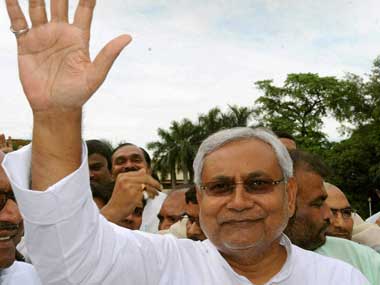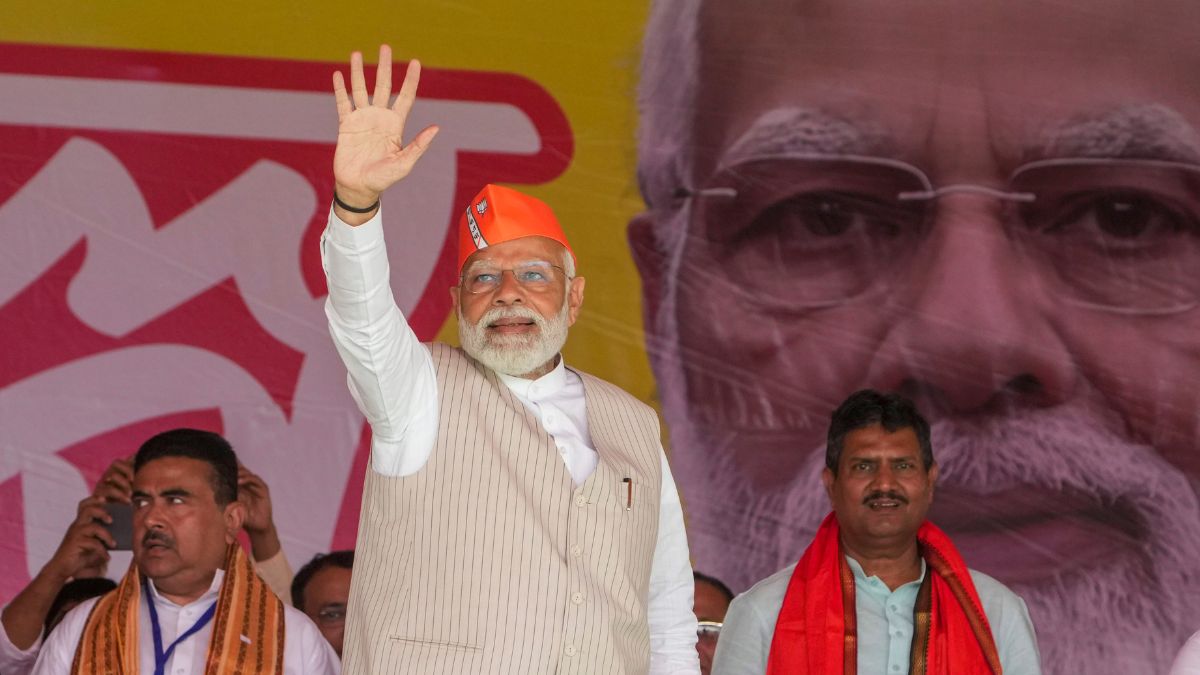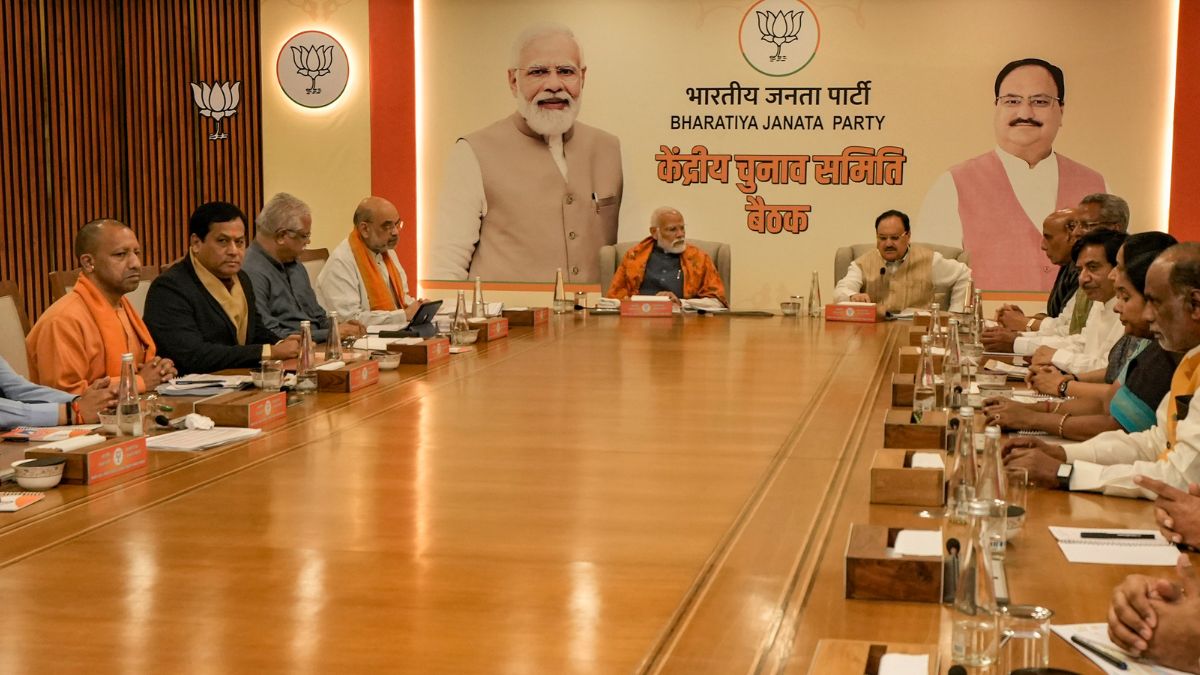Nitish Kumar’s decision to break his highly successful alliance with the BJP was always seen as a high risk gamble, and the results of a CNN-IBN poll have only served to confirm that. Thirty eight percent of respondents to the poll said that the Chief Minister should have accepted Narendra Modi and kept the coalition intact, while only 20 percent felt he did the right thing.
The high level of dissatisfaction seems to be rooted in the age old adage, “if it isn’t broken, don’t fix it”. Sankarshan Thakur of the Daily Telegraph newspaper in Bihar said in a spirited CNN IBN Election tracker discussion yesterday, that the prevailing sense is that the alliance was working smoothly and there was no need at the local level for it to come apart, because after a long time, there was a government that was actually governing Bihar.
“The sense the average Bihari voter gets is that now that a stable formation has become unstable, staying in power will become more important to Nitish Kumar than governing. There is an element of unsettlement”, he said in the discussion debating the findings of the survey.
This may be a valid argument, but the truth as always is much more complicated. Did the Chief Minister have no choice but to split from the BJP although it could spell trouble for his party in the upcoming Lok Sabha and state polls?
Eminent historian Ramchandra Guha believes he did not.
“I am sorry that the alliance broke. But it couldn’t have happened otherwise. He had no choice. Much more than entice Muslims to vote for him, he had to retain Muslims who had already moved from Lalu. Modi’s presence will only disenchant Muslims and Dalits. Once Modi was chosen as BJP face, he had no choice. Lalu would have been the greatest beneficiary if he had decided to stay”, he said.
But at what cost has Nitish held on to his ideals and has the move backfired?
Political analyst and Aam Aadmi Party member Yogendra Yadav said that Nitish’s brand new ‘secularism’ card has not worked, at least according to the survey. “This is because Nitish has not done very much to prepare his own supporters for a break up of the alliance, at least on the ground of secularism. So of course there is disenchantment”, he said.
Columnist Swapan Dasgupta also believes that the results of the survey should have the Chief Minister very alarmed. “He should have campaigned on the basis of his governance along with the BJP instead of making Modi a hate figure”, he said, adding that an acute overemphasis on how the Muslims vote, meant that everyone was forgetting how the rest of the state would vote.
Sankarshan Thakur said however, that the split was a long time coming. “The way he had set himself up, he had obviously no option - there was no way he was going to work under a dispensation led by Narendra Modi. The BJP he was aligned with in Bihar was actually a Nitish model of the BJP. It was actually a socialist government in which BJP was playing B team. So much so that there was lot of dissension and rancour within the party with BJP members calling Sushil Kumar Modi Nitish Kumar B.”
So what next for Nitish?
What the Chief Minister is likely to be most worried about is the fact that the survey shows that he may not be able to survive at the helm of his state without a coalition partner. The findings show that if a vote was held today, the JD(U) would still be Bihar’s most dominant party with 25 percent of the vote giving it between 15 and 19 seats, but that both the RJD and BJP would gain between 8-12 seats.
“This survey gives us a true sense of how much the BJP brought to the coalition. The stakes are much higher for him to want to ally”, said Siddarth Vardarajan, editor of The Hindu.
So is a JD(U) - Congress alliance on the cards? That’s tricky to say. Although analysts like Thakur feel that this is the most logical choice for the party, others like Swapan Dasgupta warn that the role of emotion and sentiment cannot be discounted. “He is life long socialist reared on an anti Congress agenda. Also going it alone may also give him more options in a post poll scenario if he were to do well”, he said.


)




)
)
)
)
)
)
)
)